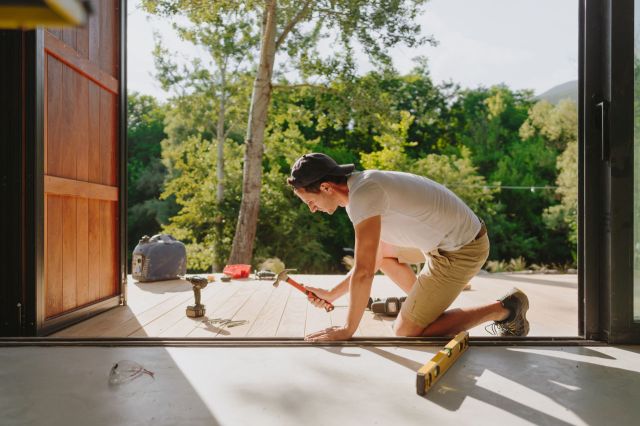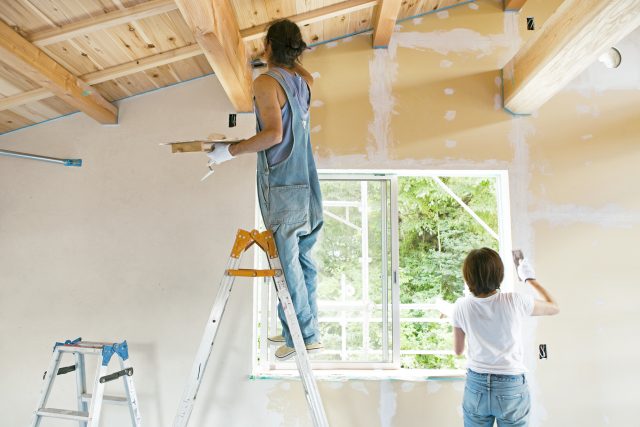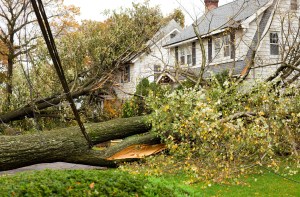Home renovations are both exciting and stressful. They improve the value of your property, not to mention your overall quality of life. But from setting a budget to vetting general contractors, there’s a lot to think about when beginning a new project.
It can be easy to overlook how your home insurance factors into this equation. But changes like a new kitchen, home additions and plumbing can all affect the home insurance coverage you need. It’s important to weigh possible premium increases into the overall cost of your renovation.
Fortunately, some types of renovations can actually lower the cost of insurance.
“It’s important to keep your agent informed about changes you make to your home for a lot of reasons,” said Ashley Kehew, director of insurance at AAA Northeast. “Plus, many times there are renovated-home discounts you are eligible for as well!”
Here are five of the most common home updates and how they can impact your insurance.
New Bathroom or Kitchen
Kitchen and bathroom renovations are popular home updates that often increase the overall value of your home. However, you’ll likely see the cost of your dwelling coverage increase, which in turn, increases your premium. Improved fixtures (such as a luxury new tub or faucets) may also exceed your personal property coverage limits, meaning you’ll need to extend them.
Note that small-scale changes (such as a new carpet or updating your windows) typically don’t require a policy change.

Home Additions or Home Office
Home additions can affect insurance coverage both during the renovation and after it’s complete.
During construction, you may need additional coverages, such as sewer backup coverage, if your renovation may affect your plumbing, or uninhabited home insurance, if you’re vacating the property during renovations.
An insurance agent can help you determine the coverage you may need during construction based on the scope of your project. Be sure your contractor has workers’ compensation or liability insurance, or you’ll be held liable if they sustain an injury on your property.
If your addition includes a home office, you may need to purchase a separate home office policy or endorsement. This increases the limit on your existing policy to include business property coverage. Be sure to notify your agent if you have increased business risk in your home. Remember, a portion of your insurance policy is always determined by your home’s square footage. This means that home additions almost always increase your premiums.
Upgrading Your Roof
Not only does upgrading your roof increase the overall value of your home, but you’ll be prepared to withstand common risks, such as extreme weather. As such, insurance premiums typically decrease.
If you live in a hail or hurricane-prone state, and your roof includes built-in loss-mitigation measures (such as hurricane straps or impact-proof shingles), you can often look forward to additional insurance discounts.
Building a Pool
A swimming pool can be an attractive feature that drives up home value. However, insurance companies consider pools an “attractive nuisance” and a significant liability risk. Add a slide or a diving board and expect your premiums to increase even more.
Some insurance providers may require you to install a locking fence around your pool or request that you purchase an umbrella policy. In certain instances, providers may deny coverage altogether. In almost all instances, you’ll need increased liability coverage.
Be mindful of pool landscaping during the design phase. For example, in-ground and above-ground pools are typically categorized differently by insurance companies.
Updating Your Electric or Plumbing
Bringing plumbing and electrical systems up to code lowers the risk of flooding or electrical fires, typically resulting in lower insurance premiums. Though the upfront cost of rewiring a home is significant, the insurance payoffs can go a long way to balance the cost.
With updated plumbing and electrical systems, you may even find more providers are willing to cover you, allowing you to shop around for a lower rate.
Ultimately, the impact of a renovation on your home insurance depends on the type of renovation and your existing policy.
Work closely with an insurance agent before, during and after your home renovation. It’s good practice to inform your insurance agents of cost estimates, a projected timeline, a description of the work and permits and contractor agreements before you begin work. Failure to notify your insurance company of a renovation could result in a voided policy or a denied claim down the line.
“Imagine after years of planning, you finally renovate your kitchen to create your dream kitchen. You’d want it to be rebuilt exactly as it was if you had a loss, right? Not only do these things change your replacement cost coverage on your home, they can also change your liability risk.” Kehew said. “Your agent can help you evaluate your new insurance needs to make sure you are properly covered.”














